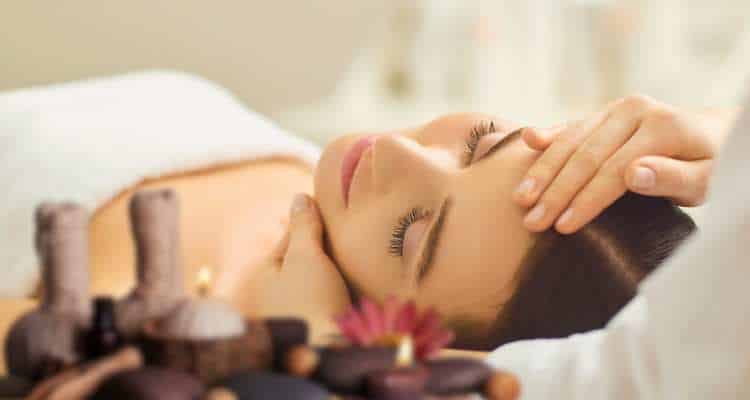Ayurvedic Treatment for Migaine in Coimbatore
Best Ayurvedic Treatment for Migaine in Coimbatore
Ayurvedic treatment for migraine focuses on balancing the aggravated Vata and Pitta dosha, reducing inflammation and the frequency of migraine attacks. This involves a combination of external therapies like Nasya (Nasal instillation), Lepana (external paste application), Virechana (purgation) and Shirodhara/vasti(oil retention), along with internal therapies such as herbal remedies and dietary changes.

Pure Herbal

Evidence Based

Guranteed Results
Book An Ayurvedic Treatment for Migaine in Coimbatore.
If you are looking for an Ayurvedic Treatment for Migaine in Coimbatre Book an appointment and get free consultation.
Aim of Our Ayurvedic Treatment for Migaine?
- Addressing imbalances in Vata and Pitta Dosha
- Helping to identify triggers
- Helping to cope with stress related pain
- Remove accumulated toxins
- Support nervous system health
- Promoting holistic well-being
Benefit of Avanika's Ayurvedic Treatment Package for Migaine
- Addresses the root cause rather than just relieving symptoms.
- Reduces frequency and intensity of migraine attacks.
- Enhances mental clarity and reduces brain fog.
- Balances digestion and metabolism, preventing ama (toxins) accumulation.
- Supports nervous system health, reducing stress-induced headaches.
- Uses natural herbal remedies, avoiding side effects of modern painkillers.
- Improves sleep quality and reduces fatigue.

What is Migraine?
Migraine is an episodic syndrome of headache with sensory sensitivity to light, sound, and head movements. It is often associated with a one-sided headache or vomiting. Migraine aura may be present in 15% of cases. The presence of triggers included under channelopathies [diseases involving malfunction of voltage-gated channels] can be considered as a state of sensitivity of the brain to change [i.e. less tolerant to change]. It may be prevented by maintaining regularity in life.
Types of Migraine
- Migraine with aura (Classical migraine)
- Migraine without aura (Common migraine)

What are the symptoms of Migraine?
Here is a list of symptoms of migraine based on different phases. It is essential to note that not all phases may manifest in all cases.
Prodromal phase
- Starts one or two days before the headache itself
- Common Symptoms may include – food cravings, depression, fatigue or low energy, irritability, frequent yawning, hyperactivity, and neck stiffness.
Aura stage
- Difficulty in speaking clearly
- You may start feeling a prickling or tingling sensation in your face, arms, or legs
- Seeing shapes, light flashes, or bright spots
- Temporarily losing vision
Attack phase
- Increased sensitivity to light and sound
- Nausea
- Dizziness or feeling faint
- Pain on one side of your head, either on the left side, right side, front or back, or in temples
- Pulsing and throbbing headache
- Vomiting
Postdrome phase
- Accompanied by changes in mood and feelings
- These can range from euphoric and extremely happy to feeling fatigued and apathetic
- Mild, dull headaches may persist
- This period may vary from 2 to 4 or 7 days from person to person
What are the causes of Migraine?
Migraine is a complex condition and the exact cause is still unknown and differs from person to person. Here are few common causes:
1. Neurological and Biological Factors
- Genetics: A family history of migraines increases the likelihood of developing the condition.
- Brain Chemistry Imbalance: Fluctuations in serotonin and other neurotransmitters can trigger migraines.
- Abnormal Brain Activity: Hyperactivity in certain areas of the brain can lead to sensory overload and pain.
2. Hormonal Changes
- Menstrual Migraine: Hormonal fluctuations, especially drops in estrogen, trigger migraines in some women.
- Pregnancy and Menopause: Some women experience migraines due to hormonal shifts during these phases.
- Oral Contraceptives and Hormonal Therapy: These can either trigger or alleviate migraines, depending on individual sensitivity.
3. Dietary Triggers
- Caffeine: Excessive or sudden withdrawal from caffeine can lead to migraines.
- Alcohol, Especially Red Wine: Can dilate blood vessels, causing headaches.
- Processed and Aged Foods: Cheese, chocolate, and artificial sweeteners (e.g., aspartame) may trigger migraines.
- Skipping Meals and Dehydration: Can lead to low blood sugar, which is a common migraine trigger.
4. Environmental Factors
- Bright Lights and Screen Exposure: Intense or flickering lights may trigger migraine attacks
- Loud Noises and Strong Smells: Sensory overload can cause migraines in sensitive individuals.
- Weather Changes: Sudden temperature shifts, high humidity, and storms can contribute to migraines.
- Pollution and Air Quality: Strong odors, smoke, or poor air circulation may induce headaches.
5. Stress and Emotional Factors
- Chronic Stress and Anxiety: Increased tension can lead to migraines.
- Emotional Upsets: Depression, worry, or sudden emotional changes can trigger attacks.
- Lack of Sleep or Irregular Sleep Patterns: Disrupting the body’s natural sleep cycle can contribute to migraines.
6. Physical Triggers
- Overexertion and Fatigue: Intense exercise or lack of rest can lead to migraines.
- Posture-Related Strain: Poor sitting or sleeping posture may trigger headaches.
- Head and Neck Injuries: Trauma to the head or neck can contribute to chronic migraines.
7. Medication and Chemical Exposure
- Painkiller Overuse (Medication Overuse Headache – MOH): Frequent use of pain relievers can lead to rebound headaches.
- Certain Medications: Blood pressure medicines, antidepressants, and hormone-based drugs may act as triggers.
- Painkiller Overuse (Medication Overuse Headache – MOH): Frequent use of pain relievers can lead to rebound headaches.
Risk factors
- Lifestyle factors- sleep, stress, depression, anxiety, irregular meal schedule, etc.
- Food factors- alcohol, caffeine, citrus fruits, food containing tyramine, dehydration Environmental triggers
- Seasonal triggers
- Travel triggers
- Sensory triggers
- Hormonal triggers
- Medications
Ayurvedic Perspective on Migraine
Ayurveda views migraine as an imbalance in Vata and Pitta Doshas in the body and is often referred to as Ardhavabhedaka in Ayurveda. Excess Pitta and Vata Dosha may lead to inflammation and sensitivity, leading to migraine.
Migraine Ayurvedic treatment primarily focuses on balancing doshas to balance these doshas and reduce inflammation, thus addressing the root cause of migraines.
Ayurvedic treatment for Migraine in Coimbatore
Ayurvedic treatment for migraine puts forward its deep-rooted knowledge of Ayurvedic science by combining scientific expertise in both internal and external therapies. Migraine is a neurological condition with vitiated vata and pitta dosha, a well-tailored panchakarma therapy can benefit the patient to ameliorate the disease completely, preventing its recurrence. Many find significant relief by incorporating Ayurvedic treatments with Ayurvedic medicine for migraines. Let’s explore some of the best ayurvedic medicines for migraine headaches, single herb remedies, and other external and internal panchakarma therapies
Ayurvedic herbs for migraine
Ayurvedic herbs for migraine headaches are those with cooling properties as well as that act on the brain that help calm excess pitta dosha and do not vitiate Vata dosha. It includes Ashwagandha, Amla, Brahmi, Draksha etc. Amla is known for its tridosha balancing and cooling properties, while Brahmi is revered for its neuroprotective benefits. It helps calm the mind, alleviate stress, and improve sleep quality, which can reduce migraine frequency. Ashwagandha is an adaptogenic herb that helps combat stress, a common migraine trigger. Ashwagandha supports the nervous system, reducing migraine frequency over time. Draksha is revered to be pitta balancing and nourishing, thus containing migraine symptoms.
Compound Medicines
Here are some Ayurvedic medicines from top brands specifically formulated for migraine headaches.
- Shirahshooladi Vajra Ras: Known for its analgesic effects on the nervous system, Shirahshooladi Vajra Ras is a popular ayurvedic medicine for migraine headaches.
- Ashwagandha Churna: With its adaptogenic properties, ashwagandha can aid in easing stress and indirectly benefits those with migraine headaches.
- Pathyakshadhatryadi / Varanadi/ Drakshadi Kashayam: Known for its ability to calm Vata dosha and benefit those experiencing migraines.
Panchakarma and External Therapies
Virechana
Virechana is an Ayurvedic panchakarma technique where the excess pitta dosha is eliminated through the gastrointestinal tract.Herbal purgatives are administered to calm pitta dosha and reduce inflammation. It is a prime remedy in migraine attacks and may help uproot the disease. Virechana can be done either as a panchakarma therapy preceded by snehana and swedana techniques, which prepare the body for detoxification. As a milder approach, it can be done at home through mild virechana formulations like Avipathi churna or lehyas.
Shiro abhyanga
Shiro abhyanga is a traditional process of applying oil over the scalp to assist in relaxing the nervous system. It can be practised daily as per the physician’s advice. Ayurvedic practices use Balahatadi thailam, Brahmi thailam, or Balaguluchyadi thailam for shiroabhyanga, according to the condition of the patient. Additionally, kachooradi choornam can be used after thalam for added benefits.
Shirodhara/Shirovasti
Medicated oils/ buttermilk are used as the medium to help calm vata dosha wherein the liquid is either retained (shirovasti) or poured (shirodhara)over the head in a constant motion. This traditional Ayurvedic treatment relaxes the nervous system, and balances doshas.
Nasya (Nasal Therapy)
Nasya involves the instillation of herbal oils in the nasal passages for enhancing the nervous system and providing relief from migraine symptoms. Nasal drops, like Anu Tailam, Shadbindu Taila, etc can help support nerve health, which can alleviate migraine pain
Thalam
Herbal powders or tablets like kachooradi choornam, Rasnadi choornam or karuthavatt gulika are pounded and mixed with herbal oils or liquids like balahathadi taila, ksheerabala taila and applied in a coin sized shape over the bregma to relieve pain
These treatments can be ended up with a Rasayana therapy and satwawajaya chikitsa to ameliorate the disease entirely.
Lifestyle Recommendations for Migraine
- Avoid excess smoky and hot climatic conditions
- Regular and healthy sleep patterns, and avoiding caffeine and alcohol can help ease the symptoms
- Finding out your triggering factors can benefit the outcome of the treatment
- Additionally include yoga, pranayama, and other meditation techniques for added holistic care.
- Go to bed and wake up at the same time daily to prevent sleep-related triggers
- Practice yoga, meditation, or deep breathing exercises to reduce stress-induced migraines
- Reduce exposure to bright screens, and use anti-glare filters or blue light glasses
- Engage in low-impact activities like walking, swimming, or gentle yoga to improve circulation
Protect yourself from environmental triggers by wearing sunglasses outdoors and avoiding strong perfumes or smoke
Diet During Ayurvedic Treatment for Migraine
Dietary changes are necessary to completely eradicate this debilitating disease. Ayurveda suggests a few dietary changes for migraine which include:
- Avoiding spicy, sour, or fermented foods, preventing Pitta aggravation, and minimising migraine triggers
- Include pomegranate, dried grapes, milk, etc in your diet
- Including magnesium-rich foods like leafy greens, nuts, seeds, and whole grains help regulate nerve function.
- Drink plenty of water and herbal teas to prevent dehydration, a common migraine trigger.
- Eat small, frequent meals to maintain stable blood sugar levels and prevent hunger-induced migraines.
- Preservatives, artificial sweeteners, and MSG can trigger migraines, avoid those.
- Excessive consumption or sudden withdrawal can contribute to headaches.
How to Prevent Osteoarthritis in Natural Way?
- Keep a track on the patterns and triggers and avoid those
- Lavender or peppermint oil applied to the temples can help ease migraine symptoms
- Applying a cold or warm compress to the forehead can provide relief.
- Periodic detoxification therapies such as Virechana (purgation), may help cleanse toxins that contribute to migraines
- Acupressure therapies wherein gentle massage of pressure points can reduce tension and improve circulation.
- Yoga and meditation to keep one stress free
What are you waiting for...
Book an Appointment
Hours & Contact
28A Bharathi Park 7th Cross, Saibaba Colony, Coimbatore
641043
+9142229 69555
+9189039 69555
info@avanikaayurvedic.com
Open All Days 7:00 AM -7:00 PM
